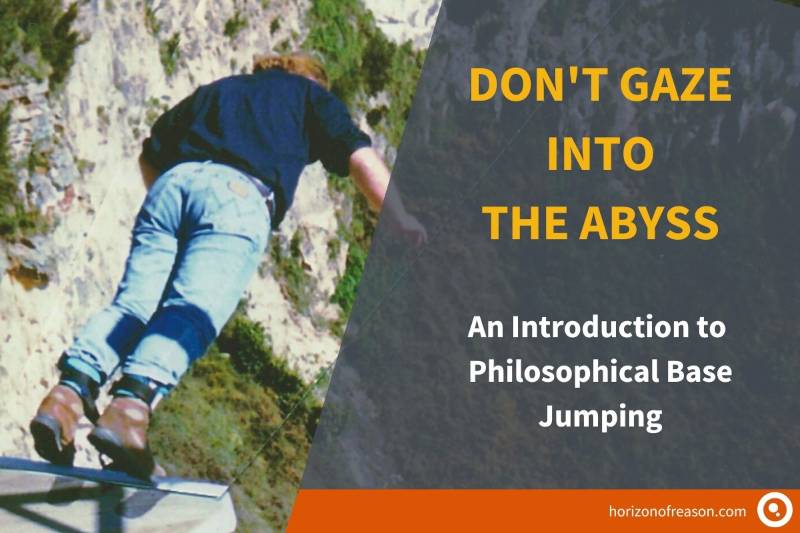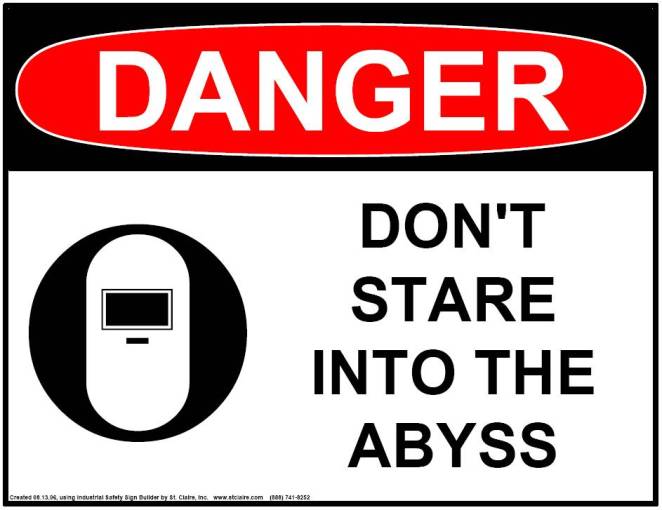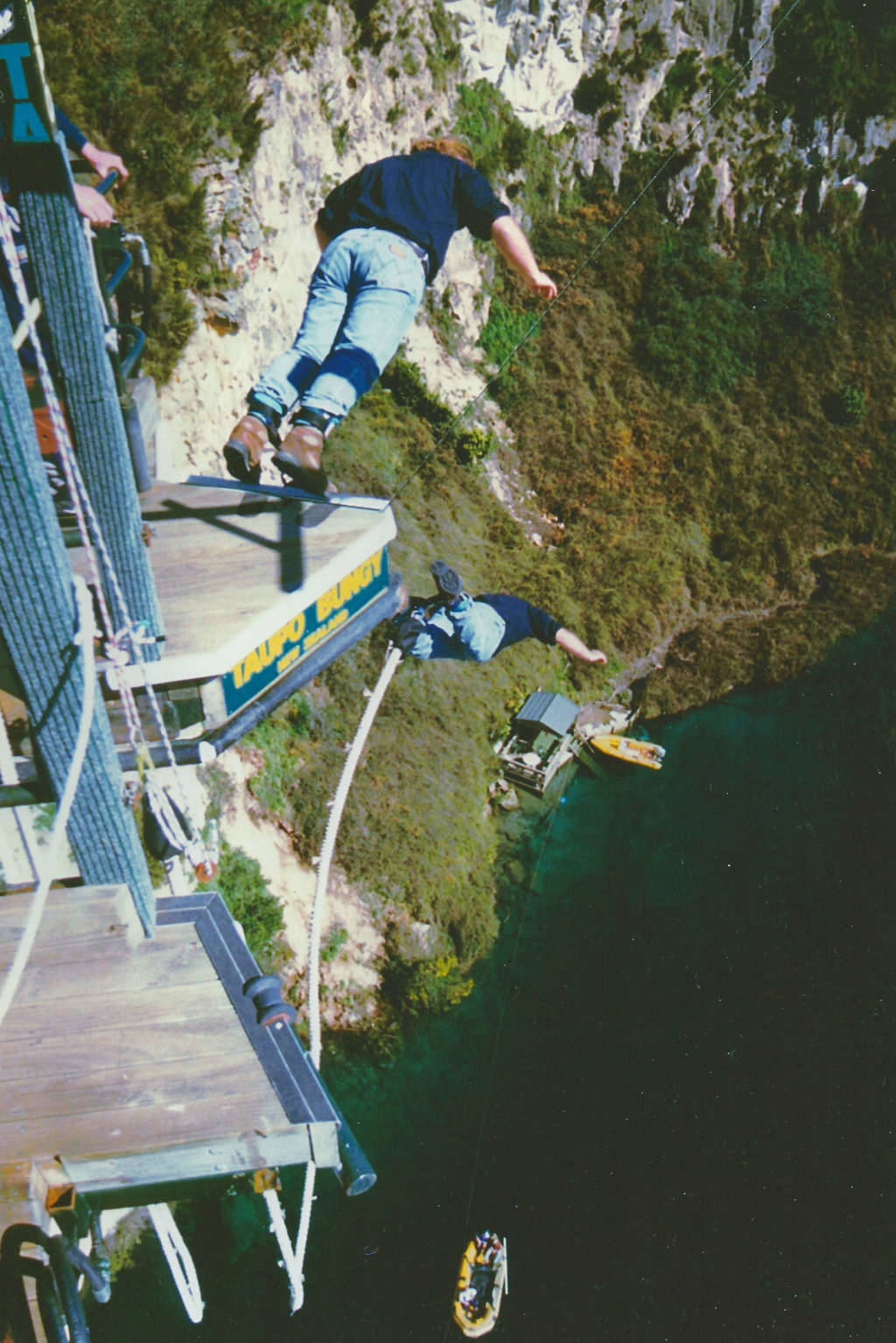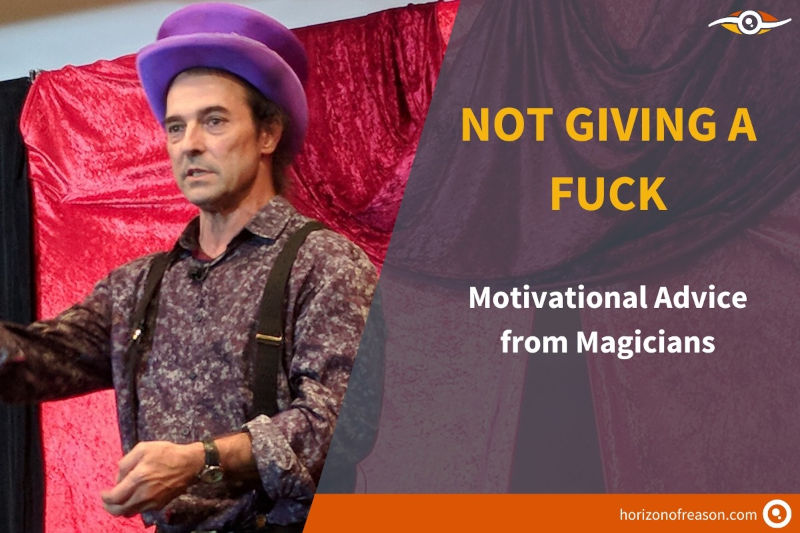
Don't Gaze into the Abyss: Philosophical Base Jumping

Peter Prevos |
1320 words | 7 minutes
Share this content
Almost a quarter of a century ago, on a long night filled with philosophy, Belgian beer and the music of Dead Can Dance, my friends and I discussed one of Friedrich Nietzsche’s famous 'gaze into the abyss' aphorism from his Beyond Good and Evil.
"He who fights with monsters should be careful lest he thereby becomes a monster. And if thou gaze long into an abyss, the abyss will also gaze into thee." (Friedrich Nietzsche, Beyond Good and Evil Aphorism 146)
Like in most of Nietzsche's books, he doesn't explain this aphorism and leaves it up to the reader to interpret its meaning. I cannot remember what our conclusion was on that night, but these words have haunted me ever since. It has taken me until recently to understand what Nietzsche could have meant with this mystical statement.
This article explores what gazing into the abyss means. I agree with Nietzsche that we should indeed not be gazing into the abyss. Instead, we should go beyond staring and bravely leap into the boundless chasm and practice philosophical base jumping.

Don't Gaze into the Abyss
Why is staring into the abyss dangerous? Perhaps Nietzsche places a warning sign for those who venture to the edges of philosophical reasoning. Philosophy might seem an innocuous activity without real consequences, but being a philosopher has some pretty high occupational health and safety risks. I know from experience that intensely studying philosophy can detach you from common-sense. Philosophers explore the world of humans, but to do so, they place themselves outside it. Only by viewing the world from outside it can you glance it from a meaningful perspective.
Nietzsche was a victim of his success as he philosophised himself into madness. Perhaps he stared too intensely into the abyss of the human condition. Or maybe it was not his philosophy but rather a severe case of syphilis that caused his madness, but that is beyond the point.
Does Nietzsche's aphorism imply that there philosophical boundaries beyond which one should not venture? What happens when you do stare too intensely into the abyss? What is at the bottom of the abyss?
Nietzsche's aphorism reminds me of God's warning to Adam and Eve not to eat the apple in Genesis 3:3. This aphorism is also reminiscent of Prometheus' theft of the fire of Mount Olympus or Morpheus' invitation to swallow the red pill. These ancient and contemporary mythologies share a common thread of forbidden wisdom, or in the words of Kevin Solway, they are Venom Crystals.
These mythologies suggest that obtaining knowledge can have negative consequences. Advanced knowledge dissolves our innocence and dislodges us from a presumed state of ignorant bliss. With great knowledge comes great responsibility and Nietzsche warned us of the perils of such knowledge. Gazing into the abyss becomes a metaphor for the kind of knowledge that God did not want Adam and Eve to possess, the kind of secret knowledge that Prometheus stole from the gods of Mount Olympus. Staring into the abyss has the same effect as eating the red pill because you might find an uncomfortable truth that forever changes the way you view the world.
Jump into the Abyss
Philosophers have sought firm ground for over 2500 years. They have attempted to find a sound basis for our knowledge of the world. Socrates drove his fellow Athenians crazy with his ongoing questioning about the reasons behind their actions, which eventually cost him his life. Most philosophers are like a toddler that keeps asking "why" every time you think you have an answer. Managers are contempt with asking 'why' up to five times, but philosophy seems to consists of an infinite array of finding the truth behind reality.
Some philosophers have ventured into the abyss in their attempt to find firm ground. Descartes’ thought experiment in his Meditations on First Philosophy is a perfect example of somebody jumping into the abyss to find firm ground (what he calls the first philosophy). His leap took great philosophical courage as it requires him to doubt everything he thinks he knows. Descartes tried hard to:
"… either to plant [his] feet firmly on the bottom or sustain [himself] by swimming on the surface."
However, Descartes did not succeed in planting his feet firmly on the bottom and should have been content with simply floating in the water. His philosophical project failed because he did not find a foundation for all human knowledge as he resorted to metaphysical assistance to make his philosophy work. Descartes's Meditations is not the only philosophical project that failed to find firm ground for our knowledge.
As this aphorism appears in Nietzsche's Beyond Good and Evil, perhaps we should not take his warning literally but go beyond it. Maybe we should—just like Eve did eat the apple, just like Prometheus steal the fire and just like Neo, swallow the red pill.
Staring into the abyss is like pressing your nose against the toy shop window. You can see your objects of desire in the display window but you cannot play with them, and you will never know what is at the back of the shop. To fully understand what is on offer you will have to enter the store. To enhance our understanding of the world we need to go beyond gazing into the abyss. The solution came to me from reading a book about the boundaries of thinking by Dutch philosopher Jan Bor, who quoted Dutch poet Lucebert:
"… who falls into the abyss becomes an aviator—free and floating."
It dawned on me that the only way to prevent the dangers of staring into the abyss is to jump into it. Staring refers to our feeble attempts to locate firm ground down in the dark depths of the chasm.
Philosophical Base Jumping
The solution to Nietzsche’s aphorism is to take a leap of faith and, just like Descartes, jump into the abyss. Not to find firm ground, but to make the void your home, or in the words of Lucebert, become free and floating. Don't stare into the abyss but jump into it!
Jumping into the abyss and accepting there will be no firm ground removes the fear of falling to your philosophical death. The eternal state of free fall is a state of blissful weightlessness. After 2500 years of written philosophy, nobody has been able to find a firm foundation for our thinking. Becoming free from any foundation for thinking is not a postmodern excuse to say that nothing is real. Detachment from the straitjacket of first philosophy does not mean you don't give a fuck about anything.
Becoming an airman means that you create your philosophy, floating over the landscape of existence in a metaphysical hot air balloon. So finally, after 25 years of Nietzsche's aphorism lurking in the crevasses of my brain, I have found an acceptable interpretation. We can remove the warning signs and practice some philosophical base-jumping!

In 1996 I moved from the philosophical to the physical and tried some bungee jumping in Lake Taupo, New Zealand. I did have a rubber band tied to my ankles because I was not willing to accept the physical consequences of jumping without one and base jumping is beyond my limits of bravery. The experience was enlightening nevertheless. Standing on the platform, I was almost trembling with fear. Perhaps my strongest motivation to take the plunge was my girlfriend who went before and was waiting for me in the dingy. As stepped forward and experienced weightlessness, the fear quickly fell away, and I was in a state of blissful awareness. Unfortunately, this moment of bliss only lasted for a couple of seconds as the rubber band stretched and snapped me back to reality.
Don't be afraid to let go of preconceived ideas, jump into the abyss of philosophy and experience mental weightlessness.
Share this content


